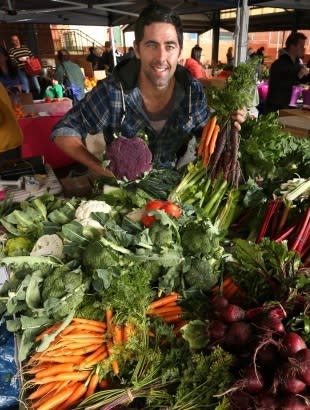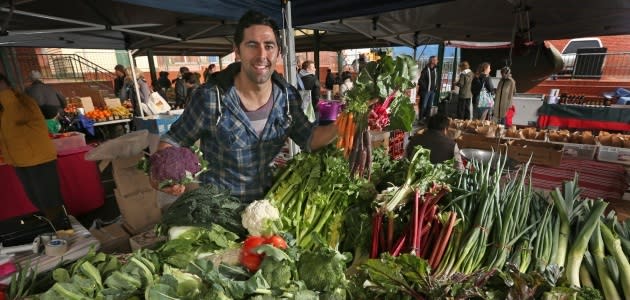WA diet, exercise shortfalls 'alarming'
An increasing number of West Australians are failing to meet national diet and exercise guidelines, a study reveals, with experts warning of unprecedented rates of chronic disease if the trend continues.
The survey by health provider HBF and Painted Dog Research shows fewer West Australians are eating nutritious foods and exercising regularly compared with previous years.
It found just 15 per cent of West Australians ate the recommended five serves of vegetables and two serves of fruit daily, down from 21 per cent in 2012 last year and 38 per cent in 2011.
Only 54 per cent of people exercised for half an hour at least once 1-2 times a week and only 7 per cent did so daily.
The survey also found 57 per cent of obese people exercised only two to three times a month or less, with one in five admitting they never exercised.
Trevor Shilton, director of cardiovascular health at the Heart Foundation WA, said the figures were alarming considering that in WA more than 60 per cent of adults and a quarter of children were already categorised as overweight or obese.
“These rates have increased markedly in the last few decades with diets worsening and our increasingly sedentary lifestyle,” Mr Shilton said.
“If this continues, and it appears our habits are getting worse according to the data, the next generation will have alarmingly high rates of chronic disease and an impossible disease burden for society to bear.”
He called for a comprehensive approach from State and Federal governments to reverse the trend.
“We need a multifaceted approach — investing in health campaigns and education, promoting cycling and walking, more public green-space and making healthy food more affordable,” he said.
“We need to tackle this the same way we tackled smoking — it needs to be a well-funded, wide-reaching approach.”
Australian Medical Association president Richard Choong agreed and said the key was making healthy food more affordable and not making unhealthy food more expensive.
Katie Mathiesen, manager of the Subi Farmers Market manager Katie Mathiesen said buying produce straight from the growerwas one way for families to buy healthy and get better value for money.
“Our produce lastslonger than the stuff in supermarkets because it’s usually picked that day,” she said.
“This means families trying to prepare nutritious meals each night get more bang for their buck and throw out less.”



